- Your iPad is getting a major upgrade for free. 4 top features I can't wait to try in iPadOS 26
- Your MacBook is getting a big upgrade. 5 best features I can't wait to use in MacOS 26
- The Growing Threat of AI-powered Cyberattacks in 2025
- I test tablets for a living and this is the Samsung tablet I recommend the most
- The Cost of Ignoring Patches: How State and Local Governments Can Mitigate Damaging Security Breaches
5 Best VPNs for Streaming in 2024
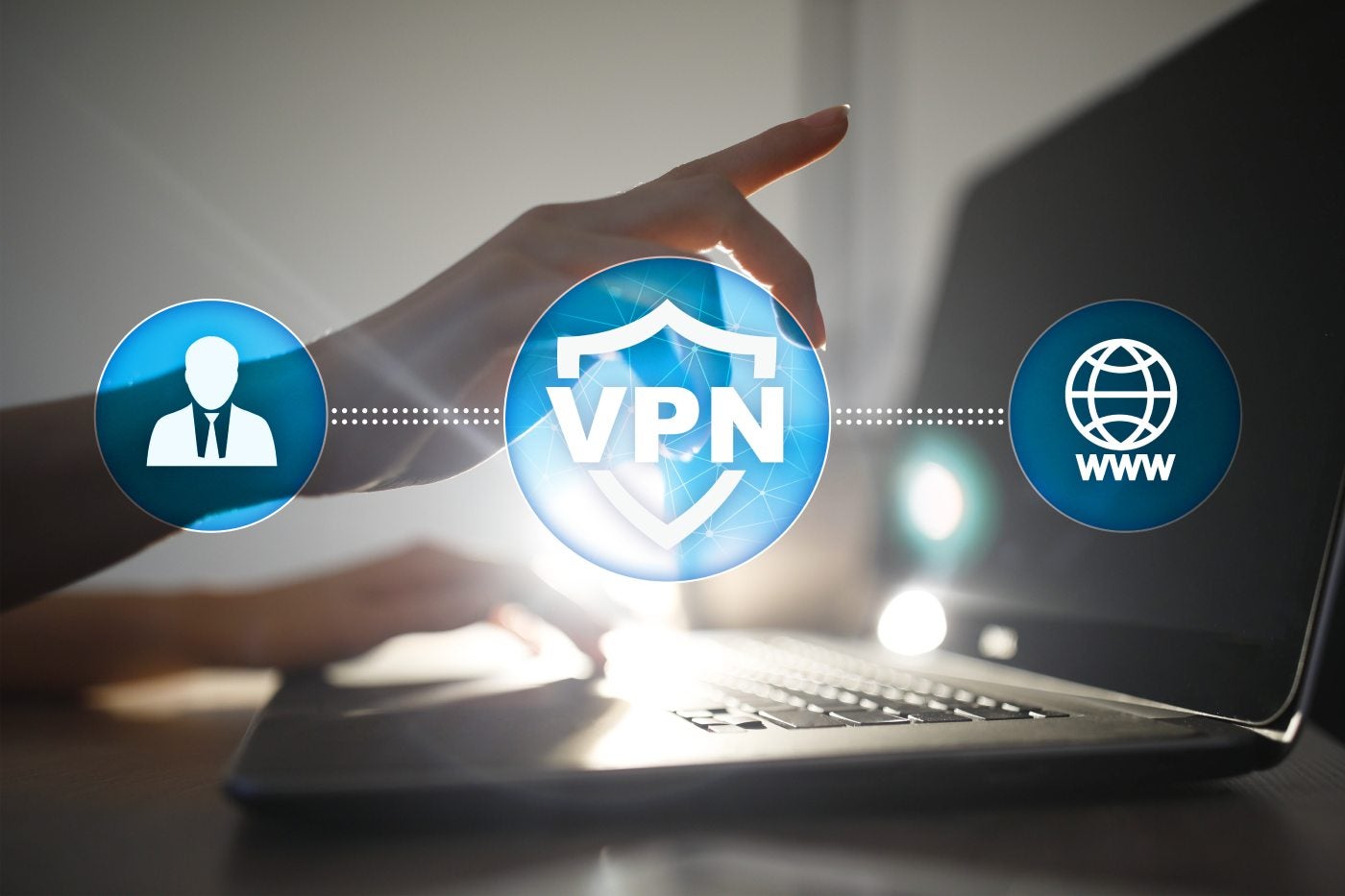
While streaming services like Netflix and Disney+ have made watching our favorite TV shows and movies much easier, there is a challenge that remains — geo-blocking. If you’ve ever traveled abroad and tried accessing your streaming subscription, you know that some of your go-to content can be restricted depending on your location.
Copyright and licensing restrictions for these mean that not all the content you’re used to having will be available in different countries. For businesses, this can affect you in various ways.
For example, businesses in the hotel industry would have a hard time providing patrons with their favorite entertainment; frequent business travelers won’t have access to their favorite shows or movies while abroad — all due to geo-restrictions imposed on streaming services.
This is where virtual private networks, or VPNs, come in. VPNs are software that lets you change your IP address and make it appear like you’re in a different location while browsing the internet. With this, you’ll be able to access your favorite streamed content regardless of where you are.
In this article, we look at the five best VPNs for streaming.
Top VPNs for streaming comparison
Since we’re using VPNs for streaming, a VPN’s server network and server locations are top priorities. These two features have the most impact on the amount of geo-restricted content we can unblock.
Surfshark: Best overall streaming VPN
Our rating: 4.6 out of 5
I highly recommend Surfshark for users looking at an all-around solution. Surfshark is a value-for-money VPN that provides almost everything you need to stream geo-restricted content. It has a decently sized server fleet of 3,200 servers, spread out across 100 countries. The 100-country server network is important, as this allows users a wider selection of streaming platforms they can unblock.
In my experience, Surfshark also provides consistently fast speeds. This makes it a perfect choice for people who aren’t too keen on waiting for their shows to buffer. Surfshark also allows for an unlimited number of simultaneous device connections. This means you won’t have to spend for an additional subscription to protect multiple devices and users.
Why I chose Surfshark
I chose Surfshark for its strong balance of VPN features, overall value, and pricing. In particular, its 100-country server network and unlimited simultaneous device connections make it a great option to unblock streaming services and the content they carry.
SEE: What Is a VPN? Definition, How It Works, and More (TechRepublic)
Pricing
Surfshark has three plans, divided into Starter, One, and One+. Starter comes with the main VPN and an ad blocker, while One includes a private search engine and data breach alerts.
One+ has all One features and provides the ability to remove user information from company databases. All three plan options have a one-month, one-year, and two-year plan.
Here’s an overview of all Surfshark one-year subscription plans:
- Surfshark Starter: $2.99 per month.
- Surfshark One: $3.39 per month.
- Surfshark One+: $6.09 per month.
Features
- 3,200 servers in 100 countries.
- RAM-only servers.
- Unlimited simultaneous device connections.
- Independently audited no-logs policy.
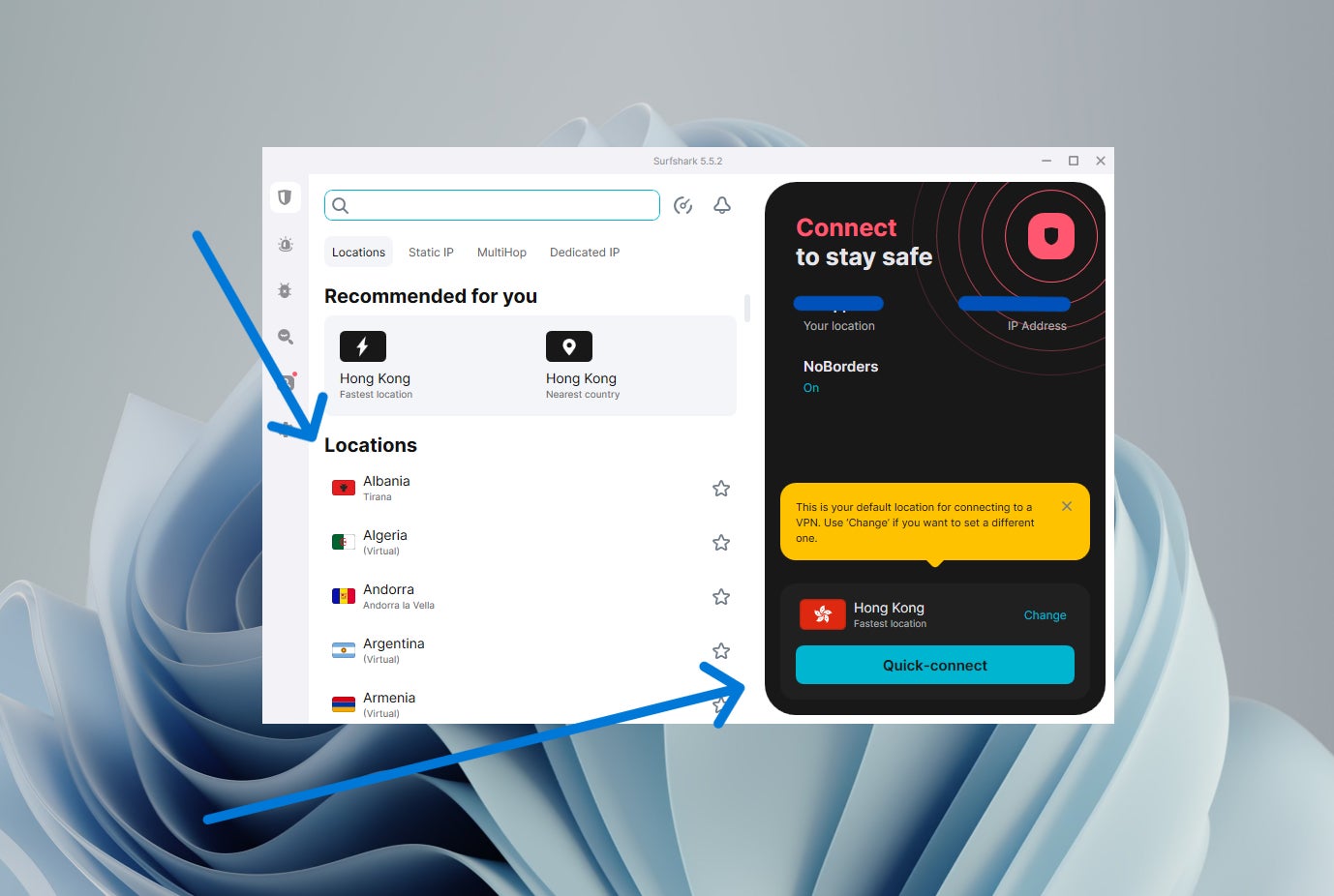
Surfshark pros and cons
| Pros | Cons |
|---|---|
| Affordable pricing. | No free version. |
| Fast VPN speeds. | |
| Can protect multiple devices at no additional cost. |
In our hands-on review, Surfshark VPN received a score of 4.6 out of 5 stars.
NordVPN: Best for speed and stability
Our rating: 4.7 out of 5

If speed is your main concern, choose NordVPN. While it’s known for its privacy-focused features, NordVPN also provides some of the fastest performance among the VPNs on this list. When I tested NordVPN, I maintained fast speeds and didn’t experience a single drop in connection while doing multiple things at once. Per my findings, I don’t think any streaming fanatic will have trouble streaming high resolution content on their device.
As of publication, NordVPN has 6,290 servers in 111 countries — which is more than what Surfshark currently offers. While not the only factor, this larger server suite plays a big part in the fast VPN speeds we get with NordVPN.
Take note, however, that Surfshark is still more affordable than NordVPN and provides unlimited device connections compared to NordVPN’s six-device limit.
Why I chose NordVPN
I selected NordVPN for its top-tier speed performance, making it a great option for users that want the fastest speeds for streaming their favorite content.
Pricing
NordVPN has three tiers: Basic, Plus, and Complete. For streaming, Nord’s Standard plan is all you need. If you opt for their Plus tier, you get data breach scanning functionality and the NordPass password manager. Complete bundles all these features with an additional 1TB of encrypted cloud storage.
SEE: Best Free VPNs for 2024 (TechRepublic)
We get monthly, one-year, and two-year plans for all three tiers. Here’s a rundown of the prices for a one-year subscription on each tier:
- NordVPN Basic: 1 year: $4.99 per month.
- NordVPN Plus 1 year: $5.99 per month.
- NordVPN Complete 1 year: $6.99 per month.
Features
- 6,290 servers across 111 countries.
- Dark Web Monitor.
- AES-256 encryption.
- Threat protection against ads, trackers, and malware.
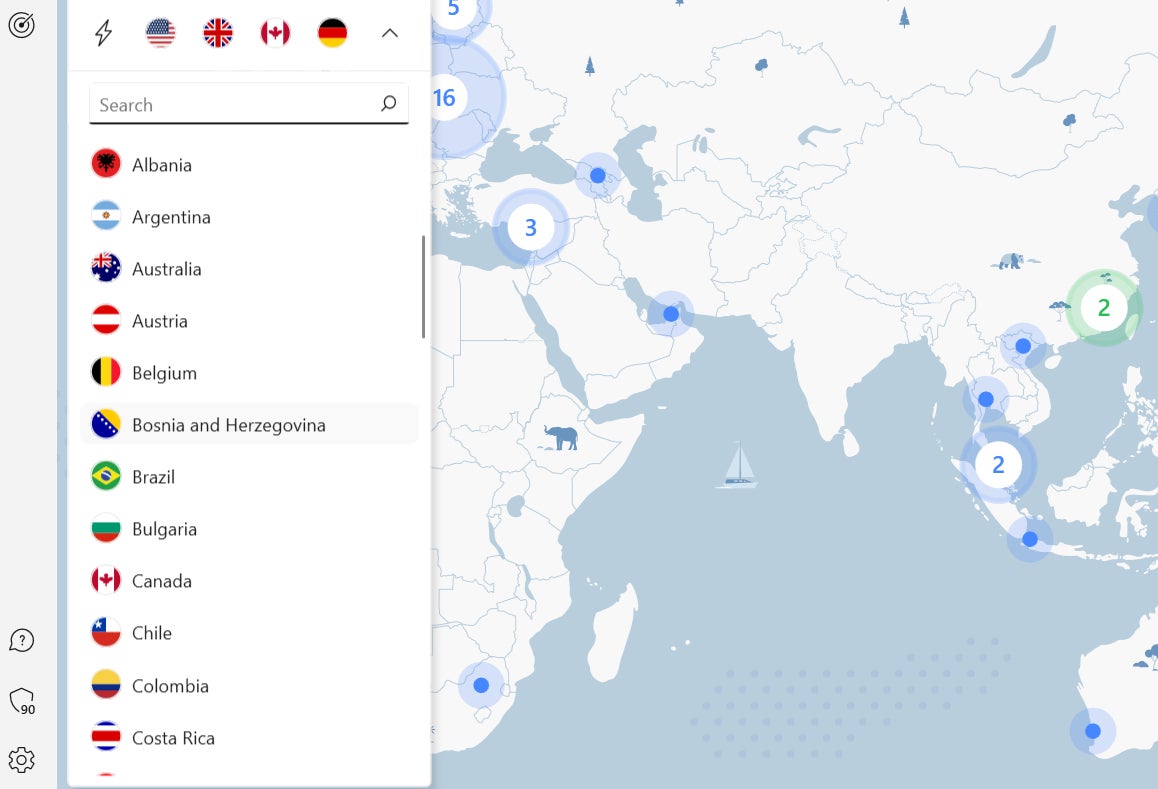
NordVPN pros and cons
| Pros | Cons |
|---|---|
| Fast and reliable speeds. | Only six simultaneous device connections. |
| Offers a suite of privacy and security features. | More expensive than Surfshark. |
| Independently audited no-logs policy. |
In our hands-on review, NordVPN received a score of 4.7 out of 5 stars.
ExpressVPN: Best for ease of use
Our rating: 4.6 out of 5

ExpressVPN is another popular option that makes a great solution for those that value the overall app experience. For my money, ExpressVPN has the best design and interface compared to the other options on this list. During my hands-on review, I especially highlighted ExpressVPN’s user interface (UI) as a reason to try it out.
ExpressVPN carries a modern and clean interface that’s easy on the eyes and not overtly technical. If you’re a bit intimidated by security software like VPNs, I highly encourage ExpressVPN, as it makes it really easy to get into it.
On top of all that, ExpressVPN offers snappy speeds and impressive stability. During my testing, I encountered zero issues in terms of connection and overall speed.
Why I chose ExpressVPN
I picked ExpressVPN for its desktop application’s pleasant and well-designed user interface. Its UI is easy to use and intuitive, making it an easy pick for less tech savvy users out there.
Pricing
ExpressVPN has three plan options: a monthly, 6-month, and yearly plan.
- ExpressVPN 1 month: $12.95 per month.
- ExpressVPN 6 months: $9.99 per month.
- ExpressVPN 1 year: $6.67 per month.
Features
- Servers in 105 countries.
- RAM-only servers.
- AES-256 encryption.
- Can protect up to 8 devices simultaneously.
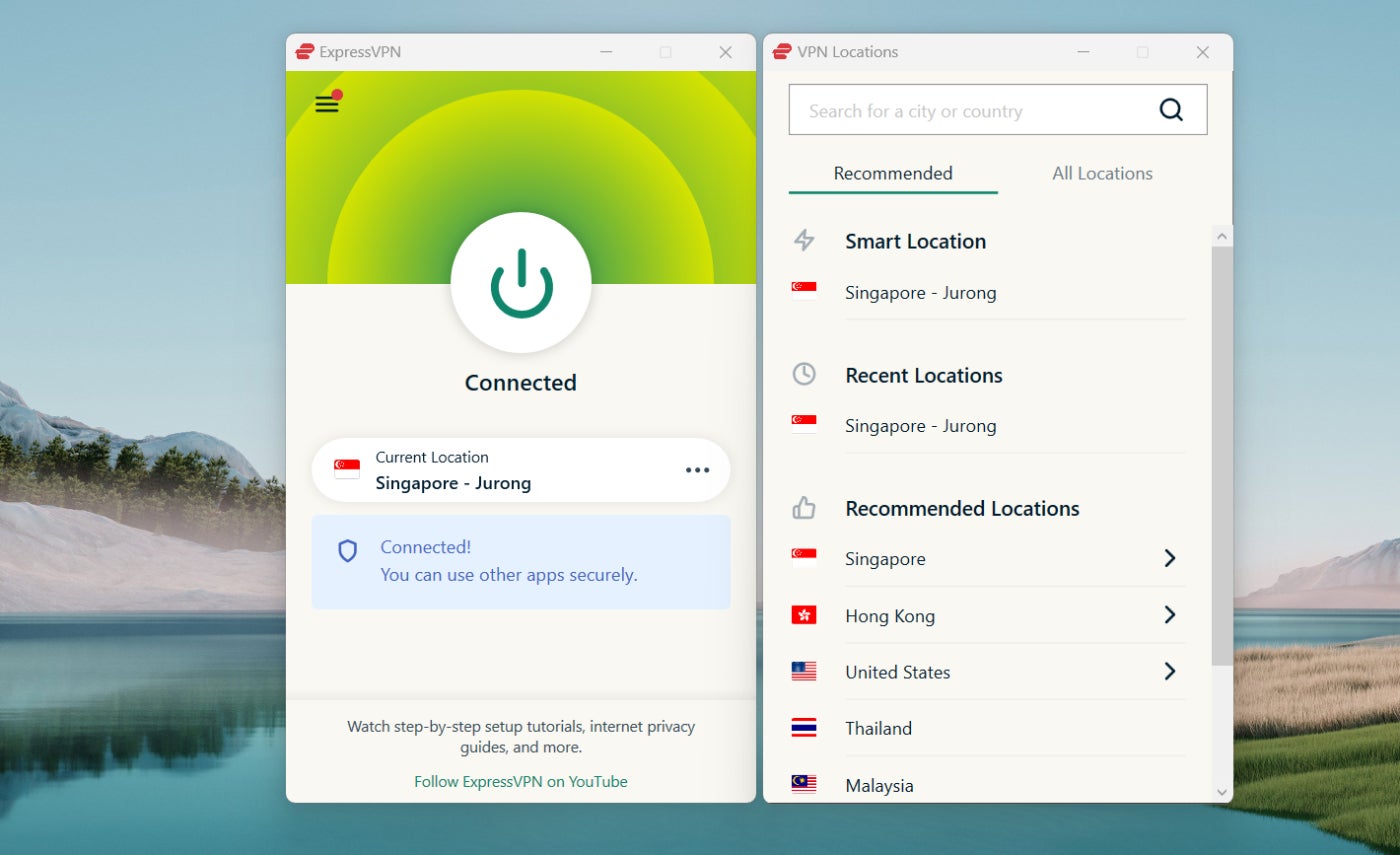
ExpressVPN pros and cons
| Pros | Cons |
|---|---|
| Well-designed and easy to use interface. | Expensive. |
| Fast and stable speeds. | No long-term plan options. |
| Completed more than 10 independent audits. |
In our hands-on review, ExpressVPN received a score of 4.6 out of 5 stars.
CyberGhost VPN: Best for extensive server network
Our rating: 4.3 out of 5

If you want a large server fleet, CyberGhost VPN is your pick. CyberGhostVPN’s server network spans 126 locations and 100 countries. Reportedly, this is made up of around 9,000 servers. While this isn’t an official number from CyberGhost, even the lower end of this estimate is much larger than most of the other server networks on this list.
With CyberGhost’s server fleet, you have more flexibility in the streaming platforms and geo-restricted content you can unblock. CyberGhost VPN also pairs this large network with optimized servers specifically for streaming.
SEE: Can VPNs Be Tracked by the Police? (TechRepublic)
I especially like how CyberGhost includes what streaming service is best unblocked with a particular streaming-optimized server. For example, we can see below that one of CyberGhost’s Australian servers is optimized for Netflix AU.
Why I chose CyberGhost VPN
CyberGhost VPN carved its name on this list for its large server fleet and streaming-optimized servers. It also gets points for smartly showing which streaming services are best used for each streaming server.
Pricing
CyberGhostVPN has three plan options: a monthly, a 6-month, and a 2-year subscription. Here are the prices for each:
- CyberGhost VPN: $12.99 per month for 1 month.
- CyberGhost VPN: $6.99 per month for 6 months.
- CyberGhost VPN: $2.19 per month for 2 years.
Features
- Servers across 100 countries, 126 locations.
- Streaming-optimized servers.
- 45-day money-back guarantee.
- AES-256 encryption.
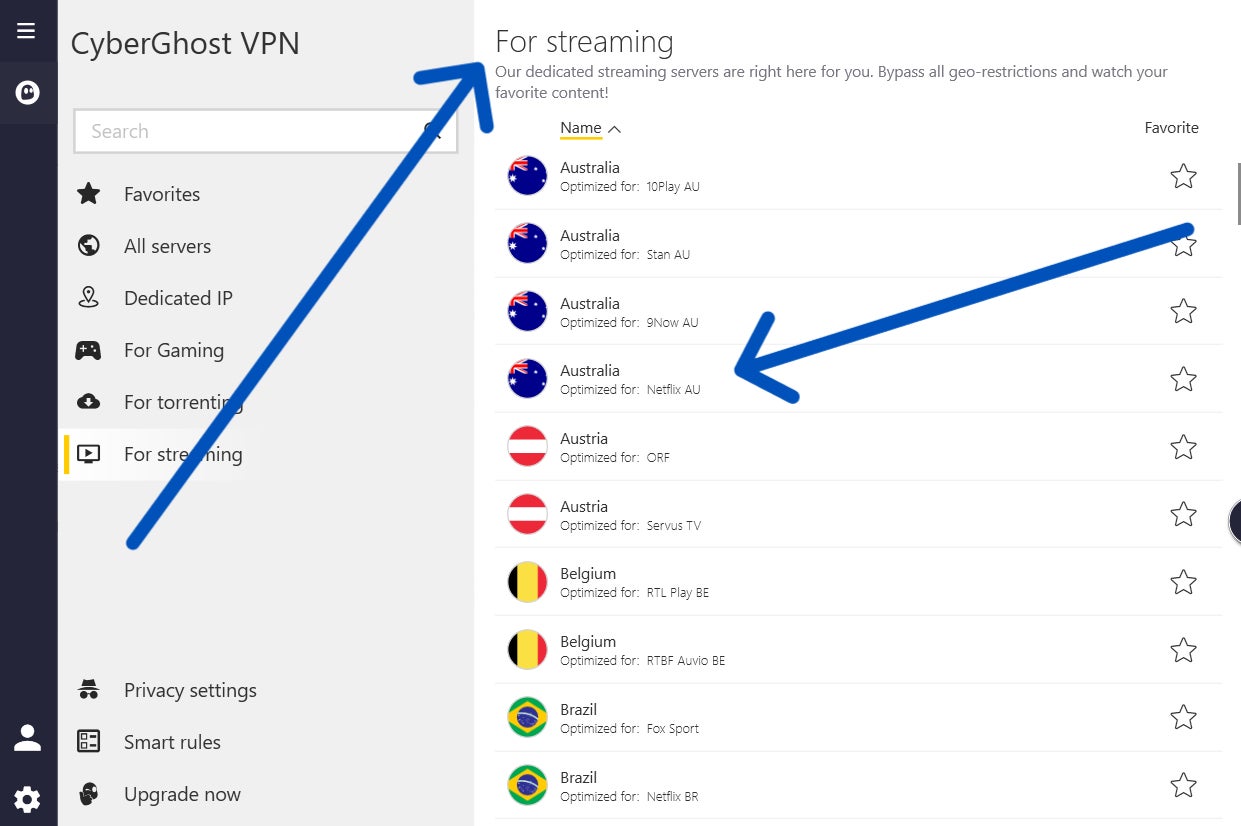
CyberGhost VPN pros and cons
| Pros | Cons |
|---|---|
| Streaming section shows optimized streaming service. | Lacks an annual plan. |
| Daily checking of each streaming server. | Six-month plan is a bit pricey. |
| Affordable 2-year plan. |
In our hands-on review, CyberGhost VPN received a score of 4.3 out of 5 stars.
Private Internet Access VPN: Best for affordable pricing
Our rating: 4.2 out of 5

For those who have a smaller budget, check out Private Internet Access (PIA) VPN. PIA VPN has affordable pricing across its three plans, making it a good choice for more budget-conscious businesses that want to unblock streamed content. Like CyberGhost, PIA VPN boasts a large server suite that reportedly ranges from 10,000 – 35,000 servers across 91 countries.
On top of that, PIA VPN is one of the only two VPNs on this list that offers unlimited simultaneous device connections — adding even more value to their service. This is perfect for users who want to unblock content on multiple devices.
I must mention, however, that while I experienced fast speeds with PIA VPN, I did experience a bug while trying to use their WireGuard protocol. Thankfully, it did resolve itself after a day, but it is something to look out for. Overall, PIA VPN provides really good value as a streaming VPN.
Why I chose Private Internet Access VPN
I picked Private Internet Access VPN for its affordable pricing, particularly on its annual and three-year plans. It also allows for unlimited device connections, adding more value for users who don’t want to spend as much on a VPN.
SEE: How Much Does a VPN Cost? + Savings Tips (TechRepublic)
On a personal note, I also like PIA VPN’s customizable desktop app, which lets users bookmark the most important information at the top of their dashboard. (Figure E).
Pricing
- PIA VPN: $11.95 per month for 1 month.
- PIA VPN: $3.33 per month for 1 year.
- PIA VPN: $2.03 per month for 3 years.
Features
- Unlimited device connections.
- Server network across 91 countries.
- Seven-day trial via mobile.
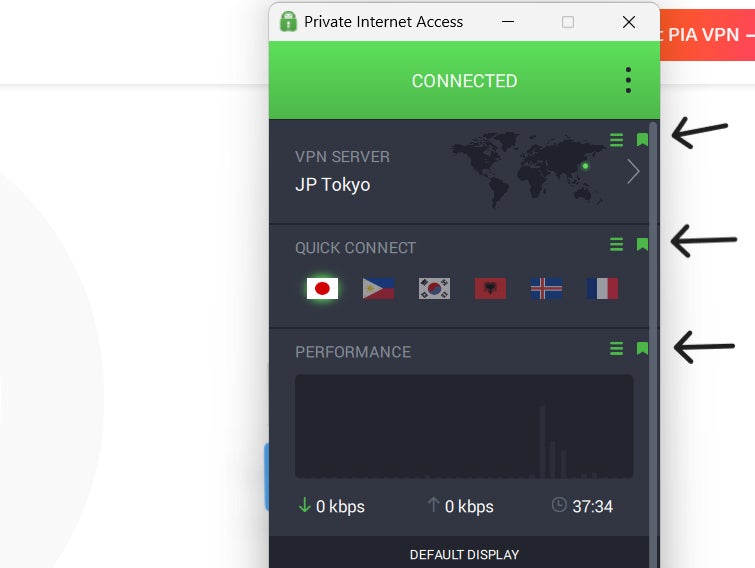
PIA VPN pros and cons
| Pros | Cons |
|---|---|
| Large server suite. | No free version. |
| Fast upload and download speeds. | WireGuard protocol may be buggy. |
| Customizable app interface. |
In our hands-on review, Private Internet Access VPN received a score of 4.2 out of 5 stars.
Best streaming VPNs according to Reddit and Quora
How VPNs perform while streaming can vary depending on your location, your internet connection, and other factors. In this regard, it’s important to see how each provider fairs in real-world use. This is why I looked into real user feedback on popular forum sites, like Reddit and Quora, to see which VPNs have performed well for streaming.
In the VPN_Support Reddit community, I observed that a good amount of users pegged NordVPN as their favorite VPN for streaming.
One user commented, “You really can’t go wrong with NordVPN, it seems to be the best out of the bunch in regards to streaming, and the amount of streaming services that allow it. If you’re doing a lot of streaming, I’d suggest NordVPN. But the rest of these are great options too.”
SEE: VPN Selection for Streaming (TechRepublic Forums)
Meanwhile, ExpressVPN was the top choice in one Quora post I saw asking about the best VPN for popular streaming services like Netflix and Hulu.
The comment said, “ExpressVPN is well-regarded for its ability to bypass geo-restrictions and access various streaming services. It offers fast speeds and a wide range of server locations, making it a popular choice for streaming.”
NordVPN and Surfshark VPN were also mentioned as recommended VPNs in the same post above.
Businesses that can benefit from streaming VPNs
If you’re wondering what type of businesses can benefit from streaming-focused VPNs, here are a few use-cases that may fit:
- Hotels, Airbnbs, and other businesses in the hospitality industry can use streaming VPNs to help customers unblock geo-restricted streaming services and content, especially patrons coming from another country.
- Frequent business travelers going on business trips abroad which may have their go-to streaming services blocked due to geo-restrictions.
- Pop culture sites or organizations that regularly cover TV shows and movies around the world can use streaming VPNs to access content that may not be available in their region.
- Sports media that need access to different sports channels and streaming services to cover games and sporting events.
SEE: Are VPNs Legal To Use? (TechRepublic)
These are just some of the instances where a business can utilize VPNs to unblock geo-restricted content and streaming platforms.
How do I choose the best ‘streaming’ VPN for my business?
To choose the best streaming VPN for your business, here are a few things to consider before taking your pick:
Consider the main purpose of the VPN for streaming
First, take some time to think about why your business may benefit from a VPN for streaming. Are there any types of geo-restricted streaming services that you need? Will this be used for leisure or as part of your business’ overall operations? Going through this first step will heavily influence what type of VPN is best for your business.
SEE: How to Create an Effective Cybersecurity Awareness Program (TechRepublic Premium)
How many devices you need to use the VPN for streaming
You should consider how many devices you want to have access to the VPN. This is important because not all VPN providers will allow for unlimited device connections. Device connections refer to how many devices can have active VPN connections all at once.
If you have multiple devices or are unsure about how many you want to have VPN access, choosing a service with no device limits is best.
If you’re on a smaller team or an individual business, it may be wise to choose more specialized VPNs tailored to your needs — even if they don’t offer simultaneous device connections.
Look into server locations and supported services
Another important aspect is VPN server locations and their supported services. A VPN that has a larger server network, covering more locations, will provide you with more choices in what type of content you can unblock.
SEE: Best VPNs for Streaming, Gaming and Torrenting (TechRepublic Forums)
In addition, some VPN services also provide lists of what streaming services their servers can unblock. These are usually accessible on their official website or VPN server page. Before purchasing a subscription, it would be helpful to take a look to see if your target service is supported.
Forego free VPNs when it comes to unblocking
While free VPNs can be useful tools, they may not be the best for unblocking streaming content. This is because free VPNs usually have smaller server networks, drastically lowering the number of locations you can use for unblocking.
Because of the lower server count, free VPNs’ IP addresses are also more likely to be blocked by streaming services.
SEE: Free VPN vs Paid VPN: Which One Is Right for You? (TechRepublic)
Finally, free VPNs also usually have data caps or bandwidth restrictions, which may make streaming laggy or slow.
Review methodology
In this rundown of the six best virtual private networks for streaming, I prioritized looking for VPNs that can help businesses unblock geo-restricted streaming services and content.
In particular, I looked at VPN server networks, VPN speed performance, and the number of device connections allowed, among others.
Each product was evaluated through a combination of first-hand experience and comprehensive research of its features. This involved doing a detailed comparison of each VPN’s features and how they fared against each other. My findings from individual reviews were used to supplement my analysis for this article.
I also looked through user testimonials and third-party reviews to help round out my final recommendations. This involved looking at real user feedback and consulting with TechRepublic community members through our official forum for their thoughts on the topic.
I also considered what VPNs were best for specific use-cases, specifically for those that plan to unblock streaming platforms to help with their business.

